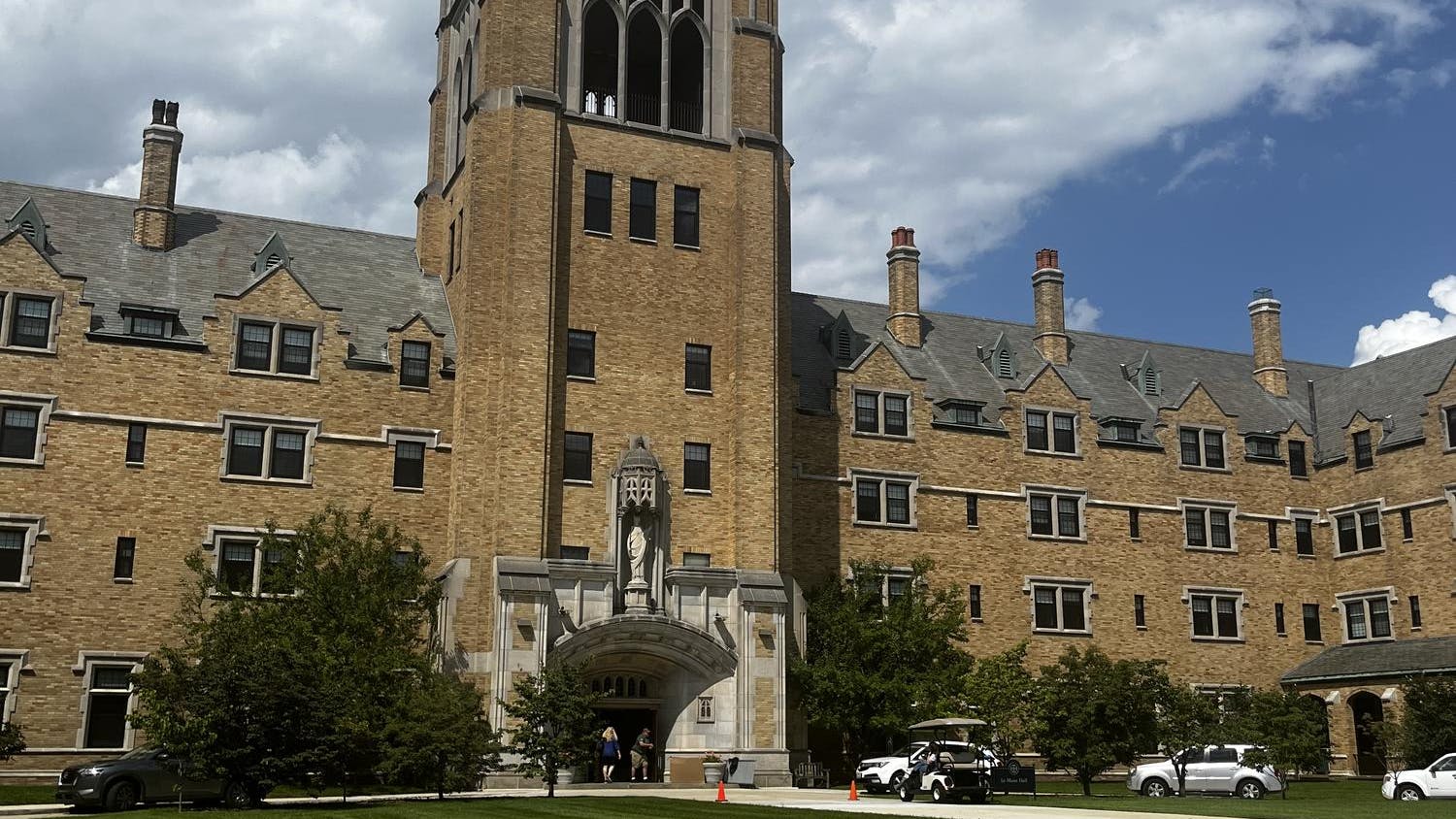The University of Notre Dame, Indiana University, Purdue University and Indiana University-Purdue University Indianapolis (IUPUI) received a repeatable five-year grant from the National Science Foundation (NSF) to further research the applications of quantum technologies in private industries.
As a part of an Industry University Collaborative Research Center, the multi-campus research team of over 100 researchers aims to answer the problems of financial, pharmaceutical, high-tech and other industries with quantum technology.

“It allows the University and the graduate students in particular to work with problems that really are of industry interest,” Peter Kogge, Ted H. McCourtney professor of computer science and engineering at Notre Dame, said.
Kogge mentioned the high demand in private industries for quantum studies, mainly to learn more about customer experience.
“We needed 12 sponsors and we got 16,” Kogge said. “We seem to have hit a good spot for industry.”
Gerardo Ortiz, an Indiana University physics professor, explained the array of campus strengths and interested organizations.
“What industry means is not just companies like IBM, Google or Amazon, but also [the] Air Force and government agencies,” Oritz said. “The kind of research in quantum technologies that we are proposing are those areas where these four universities are already some sense of world leaders.”
“[In early 2020], we submitted a planning grant to NSF, and then in May 2021 we got awarded the planning grant,” Sabre Kais, a distinguished chemistry professor at Purdue University, said. “And then they invited us to what they call the ‘bootcamp training’.”

Kais explained that in the training, they learned the expectations and the ways in which to collaborate with industries.
The research team then invited companies in the area of quantum information to a planning meeting.
“We got the industry to tell us more about the challenging problems in their industries, and the faculty from the four campuses gave a summary of their research, which was of interest to the different companies,” Kais said.
The companies then decided whether to provide additional financial support to the research team.
Kogge pointed to the cutting-edge new advancements in the field of quantum information.
“Quantum has this bizarre property, that if you have quantum bits and you untangle them and put one on one side of the universe and the other on the other side of the universe, their values will be the exact same,” he said.
Kogge additionally pointed to the lack of resources in the quantum field at the moment.
“There are not a lot of courses that people have developed. There’s not a lot of textbooks. And there’s a potential for just really things that will transform the way we think about solving problems,” he added.
Despite a lack of precedent, research is projected to start early next year, according to Oritz. Additionally, he pointed to the potentially widespread effects
“We can have a big impact at the level of the United States and internationally, he said. “And in that regard, we need to be very strategic.”
One particular area Oritz pointed to was quantum communications.
“There are some industrial partners who are interested in quantum communications and developing smart fibers that can encode quantum components to perform secure communications,” he said.
Kogge stressed the impact that quantum technology can have on society.
“That [quantum information] offers the potential of communication without the ability to have it intercepted,” he concluded.
Contact Redmound at rbernho2@nd.edu












